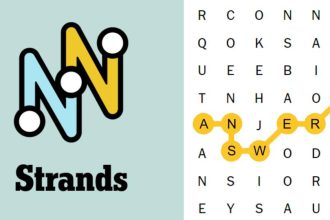Stay informed with free updates
Simply sign up to the US politics & policy myFT Digest — delivered directly to your inbox.
The US House of Representatives has voted to avert a costly government shutdown, in a significant victory for the new Speaker that would keep the federal government funded until early next year while leaving billions of dollars of funding for Israel and Ukraine in limbo.
The House voted 336-95 on Tuesday evening in support of a plan from Republican Speaker Mike Johnson to keep government spending at current levels into 2024.
Of those who opposed the bill, 93 were Republicans and two were Democrats, while 209 Democrats and 127 Republicans voted in favour.
The bill is expected to pass the Democrat-controlled US Senate, before being sent to President Joe Biden for his signature ahead of a looming Friday deadline.
It does not include the billions of dollars in additional aid for Israel and Ukraine that the White House has requested. Johnson has said he will consider a “supplemental” funding bill to deal with the extra foreign aid for Israel, as well as money for Taiwan and increasing security on the US-Mexico border, in the coming weeks.
Earlier on Tuesday, Johnson insisted he was “not surrendering” by relying on Democratic votes to avert a shutdown.
“Getting us beyond the shutdown and making sure that government stays in operation is a matter of conscience for all of us, we owe that to the American people,” he told reporters. “When you have a small majority, it requires, some things are going to have to be bipartisan.”
The support of Democrats was critical for Johnson after the House Freedom Caucus, an ultra-conservative group of Republicans, made clear it was opposing his plan.
The Freedom Caucus issued a statement earlier on Tuesday saying it was against the short-term funding deal because it “contains no spending reductions, no border security, and not a single meaningful win for the American people”.
House Democrats were begrudging in their support, saying they had backed the plan to avoid a shutdown that would have furloughed millions of federal workers.
“Once again, the Republican majority needs Democratic votes to govern,” said Rosa DeLauro, the top Democrat on the House appropriations committee. “The worth of this agreement will be proven by what comes next.”
Johnson’s two-tiered proposal imposes staggered deadlines for funding different parts of the federal government: January 19 and February 2.
Unlike his predecessor, Kevin McCarthy, Johnson is not expected to pay a political price for striking a deal to avoid a shutdown.
McCarthy was ousted as Speaker six weeks ago in a rebellion led by eight members of his own party. They took issue with a short-term funding deal that he brokered to keep the government funded at current levels.
Yet Republicans seem uninterested in punishing Johnson, a relative newcomer to House leadership.
Johnson, a conservative Christian lawmaker from Louisiana, was elected Speaker three weeks ago after a process during which House Republicans failed to coalesce around three previous nominees: Steve Scalise, Jim Jordan and Tom Emmer.
McCarthy, meanwhile, was the subject of controversy on Capitol Hill earlier on Tuesday after Tim Burchett, a Republican congressman from Tennessee, accused the former Speaker of elbowing him in the “kidneys” in the halls of Congress.
Burchett was one of the eight Republicans who voted to remove McCarthy as Speaker last month. McCarthy denied hitting Burchett.
Read the full article here




